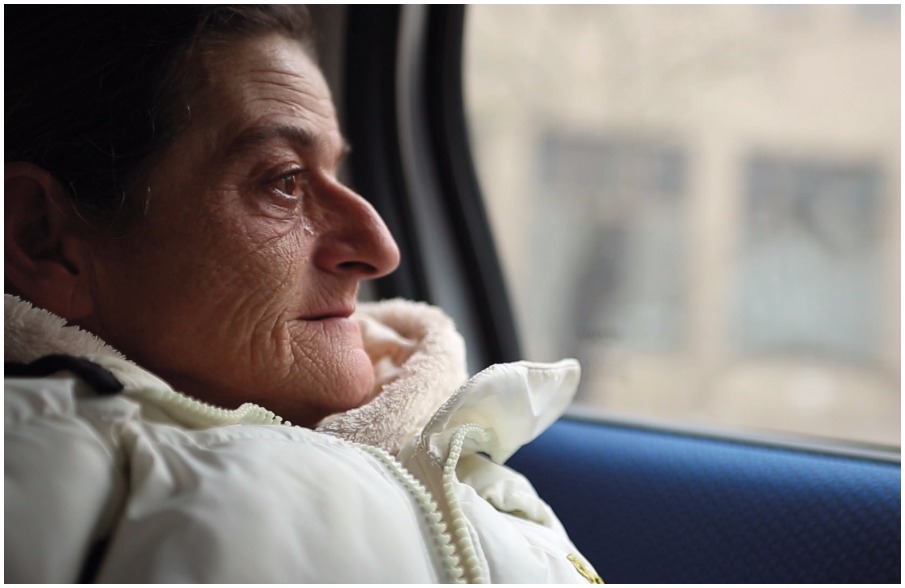PODCAST| Matt Micucci interviews Bernadett Tuza-Ritter, director of the film A Woman Captured.
Filmmaker Bernadett Tuza-Ritter presented A Woman Captured, her documentary feature debut, at the 30th International Documentary Film Festival Amsterdam (IDFA). The film follows the life of a Hungarian woman, Marish, who has been kept as a servant in a family for over a decade in extreme poor conditions – almost, in fact, as the title implies, as a captive. Tuza-Ritter met her through a woman, Eta, who bragged about having servants in her home. The director observes that when one is in the situation such as that experienced by Marish, “there is fear, but there is also a psychological freedom. If you are stuck in this situation, you cannot even imagine that there is an outside world.” In this interview she also tells us that when she found out about the nightmarish life of Marish, she tried to get outside help from institutions, who were unable to provide any type of assistance because “the door [was] not locked.” On the other hand, the film had a positive impact on Marish, and it soon became obvious to her that Marish enjoyed the attention, and that the film sometimes became an excuse for Tuza-Ritter not to leave Marish alone. In this interview, we talk about the style of A Woman Captured, and the stylistic choices that aim to make the audience understand how Marish felt. Given that A Woman Captured is Tuza-Ritter’s feature debut, we ask her what her interest in the story originated from, and whether this allowed her to explore thematic and artistic concepts that inspire her as an artist and storyteller.
A Woman Captured: An intimate close-up of a woman with a lined face. She’s asleep, until the filmmaker whispers, “Marish.” Marish opens her eyes and sits up quickly, confused but smiling. This is an apt summary of what happened during the time director Bernadett Tuza-Ritter spent filming her. Marish has been exploited and abused for more than 10 years by the woman for whom she toils as a housekeeper—entirely unpaid. She even has to hand over the money she earns with an extra job as a cleaner in a factory. She’s forbidden to do anything without permission. Marish’s 18-year-old daughter couldn’t stand it anymore and ran away a couple of years ago, but Marish lives with too much fear in her heart. Can she ever learn to trust people again? Here the old question arises as to how much the presence of the camera influences the course of events. Cautiously, Marish starts to take Tuza-Ritter into her confidence. She dreams of seeing her daughter again. Will she find the courage to take a step forward in her life?






































